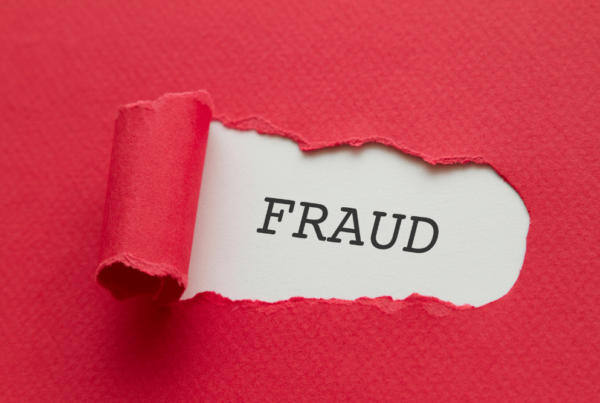FEDERAL CRIMES
Federal Racketeering (RICO) Defense Attorney
18 U.S.C. § 1961-68
What is the government’s approach to enforcing the Racketeer Influenced and Corrupt Organizations (RICO) Statute?
The federal statute on Racketeer Influenced and Corrupt Organizations (RICO) is Title 18, United States Code, Sections 1961-68. In response to the rise of organized crime and its permeation into and corrupt influence over lawful businesses, labor unions and other organizations across the U.S., Congress passed RICO as part of the Organized Crime Control Act of 1970. Prior to RICO, efforts to curb the impact of organized crime had proven ineffective. A new approach was needed to address this new threat to the economic security of the Nation. The RICO statute gave prosecutors a tool to go after not only the underlings but also the leaders of organized crime.
Since its original passage, RICO has undergone a number of amendments. The USA Patriot Act of 2001, the Intelligence Reform and Terrorism Prevention Act of 2004 and the Violence Against Women Reauthorization Act of 2013, are a few of the Acts that have revised and added predicate offenses to RICO.
The RICO statute includes four distinct violations – Sections 1962(a-d). To convict a defendant of one of these violations a federal prosecutor must prove each of the elements of the violation beyond a reasonable doubt. The violations and their corresponding elements are as follows:
18 U.S.C. § 1962(a) – Acquire an Interest in an Enterprise with Racketeering Income
To establish a violation of Section 1962(a), a federal prosecutor must prove the following elements beyond a reasonable doubt:
- Existence of an enterprise;
- The enterprise engaged in, or its activities affected, interstate or foreign commerce;
- The defendant derived income, directly or indirectly, from a pattern of racketeering activity or through collection of an unlawful debt in which such person has participated as a principal; and
- The defendant used or invested, directly or indirectly, any part of that income, or the proceeds of that income, in the acquisition of an interest in, or the establishment or operation of, the enterprise.
18 U.S.C. § 1962(b) – Acquire an Interest in an Enterprise Through Racketeering Activity
To establish a violation of Section 1962(b), a federal prosecutor must prove the following elements beyond a reasonable doubt:
- Existence of an enterprise;
- The enterprise engaged in, or its activities affected, interstate or foreign commerce;
- The defendant acquired or maintained, directly or indirectly, an interest in or control of the enterprise; and
- The defendant acquired or maintained the interest through a pattern of racketeering activity or through collection of an unlawful debt.
18 U.S.C. § 1962(c) – Conduct or Participate in an Enterprise
To establish a violation of Section 1962(c), a federal prosecutor must prove the following elements beyond a reasonable doubt:
- Existence of an enterprise;
- The enterprise engaged in, or its activities affected, interstate or foreign commerce;
- The defendant was employed by or was associated with the enterprise;
- The defendant conducted or participated, either directly or indirectly, in the conduct of the affairs of the enterprise; and
- The defendant participated in the affairs of the enterprise through a pattern of racketeering activity or collection of an unlawful debt.
18 U.S.C. § 1962(d) – RICO Conspiracy to Violate Section 1962(c)
To establish a criminal conspiracy violation under Section 1962(d), a federal prosecutor must prove each of the following elements beyond a reasonable doubt:
- The existence of an enterprise [or that an enterprise would exist];
- That the enterprise was [or would be] engaged in, or its activities affected [or would affect], interstate or foreign commerce; and
- That each defendant knowingly agreed that a conspirator [which may include the defendant him/herself] would commit a violation of 18 U.S.C. § 1962(c).
A defendant could be charged with conspiracy to violate RICO even if they did not participate in the operation or management of the enterprise. The defendant needs only to have knowingly agreed to facilitate a scheme that would, upon completion, constitute a substantive violation of RICO including at least one other conspirator who would participate in the operation or management of the enterprise.
Under Section 1963(a), the maximum penalty shall be not more than 20 years of imprisonment, unless an underlying predicate offense carries a penalty of life in prison. However, if a defendant is charged with more than one type of underlying racketeering activity, courts may treat each underlying offense as a separate count of conviction, potentially increasing the penalty.
In RICO prosecutions, the role a defendant plays in the offense may impact their penalty if convicted. A common sentencing enhancement, or increase, is considered if the defendant was an organizer or leader in the alleged racketeering activity. Alternatively, defendants who played a minor or minimal role may qualify for a mitigating adjustment, or a decrease in their penalty. However, the defendant bears the burden of proof in qualifying for a mitigating role reduction.
RICO prosecutions have been overreaching and arguable abused over the years. A statute once designed to tackle organized crime has been used to go after white collar executives and curbing banking violations. The term “racketeering” was so broadly defined that it opened the door to prosecutions that no one expected at its inception.
White Collar Crimes
Recent Posts






